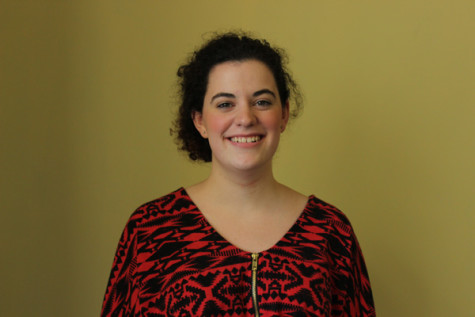Approximately 200 people poured into Heritage Hall Oct. 15, filling almost every chair. The students, faculty and community members faced toward five professors seated at white-clothed tables.
Audience members were anticipating a 7 p.m. Syrian conflict panel discussion held to raise funds for the Wounded Warrior Project.
Four professors constituted the panel, with history professor Robert Matson mediating. The professors each gave an opening speech, then audience members submitted questions for discussion.
Students Anna Macugoski and Jake Wolff organized the panel to benefit the Wounded Warrior Project, a nonprofit organization based in Jacksonville, Fla. That helps wounded service members. Attendees were encouraged to donate to the organization.
As well as helping soldiers, the panel’s purpose was to get people thinking about the conflict.
“The purpose of this (panel) is to spark discussion,” Matson said.
Each panelist brought his or her views and expertise to the conflict.
Geography professor and Syrian native Ahmad Massasati gave his position as a former Syrian citizen, and described his firsthand experience with the conflict.
“For me, it (the conflict) is something I grew up with,” he said. He told the audience how he was once captured and beaten by government agents. He stressed Syrian violence is frequent and commonplace.
“I used to think (violence) was normal, until I came to the United States,” he said.
Massasati argued foreign leaders should not intervene in the conflict unless they are serious about stopping it.
“It’s not a game,” he said.
Massasati argued why the American military should not intervene; political science professor and international affairs specialist Christopher Cook explained why it hasn’t intervened.
Cook described the situation’s complexity, citing Iran’s involvement and the Iraqi war. He told the audience that American people have the power to intervene, but relations with Iran and past interventions do not mean Americans are going to.
“There’s no doubt that we can (intervene), but that doesn’t mean we necessarily should,” he said.
Communication professor and Navy veteran Kristen Majocha disagreed.
“Why should we police the world?” she asked. “Because we can and we should.”
Majocha argued Americans should intervene simply because Syrian people are dying and Americans can stop it.
She also discussed co-cultural communication between the Syrian regime leaders and U.S. diplomats.
Professor and economist George Berger agreed with Massasati’s no-intervention position.
He cited previous failed interventions like Somalia, suggesting Syrian intervention also would fail.
He said Syrian democracy is not likely to form after an intervention because of the country’s economy and lack of civil society (political discussion separate from government, such as in advocacy groups and unions).
“Forming a democracy after (the conflict) is going to be almost impossible,” he said.
Though the panelists disagreed, their discussion helped student Holden Jones reach his own conclusion.
He said he knew about the conflict from the news, but the firsthand account from Massasati was eye-opening. He said he found the complexity with Iranian affairs to be interesting.
“(The situation) is not as black and white as people like to think it is,” Jones said.
Jones said hearing professional discussion helped him solidify his own position.
History professor Paul Newman said the civil discussion helped students form their own opinions. Now, he says, students should take the next step and tell their representative their position.
Newman said he, Macugoski and Wolff have spoken about hosting panels regularly in the future. Newman said he hopes to discuss a domestic issue at a possible future panel.
Questions kept flowing in as the panel wrapped up. People clustered around panelists afterward, eager to discuss the conflict further. Eventually, the room emptied.

